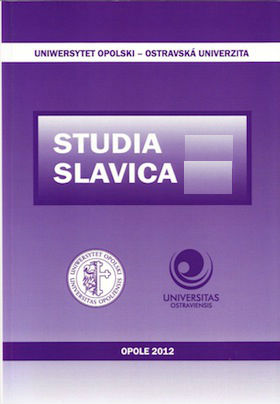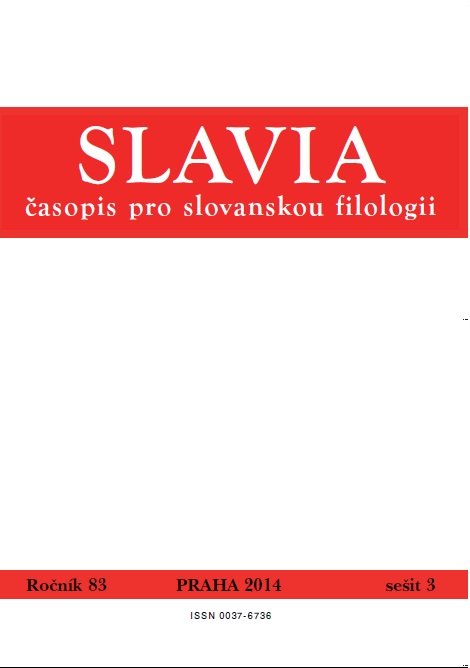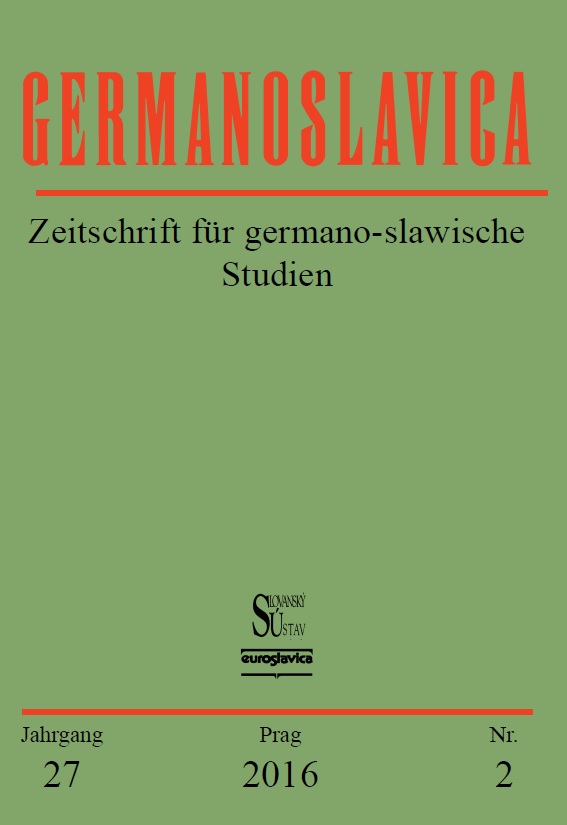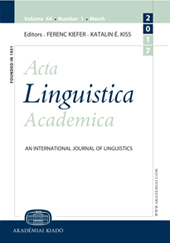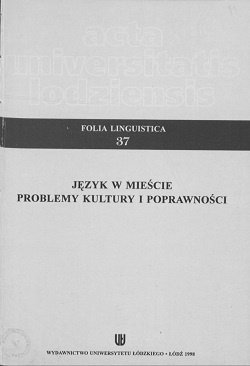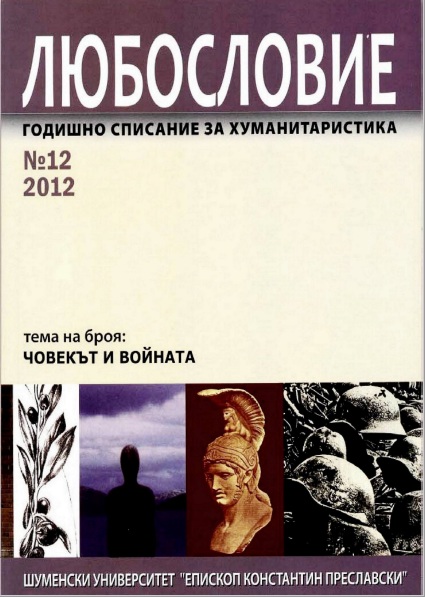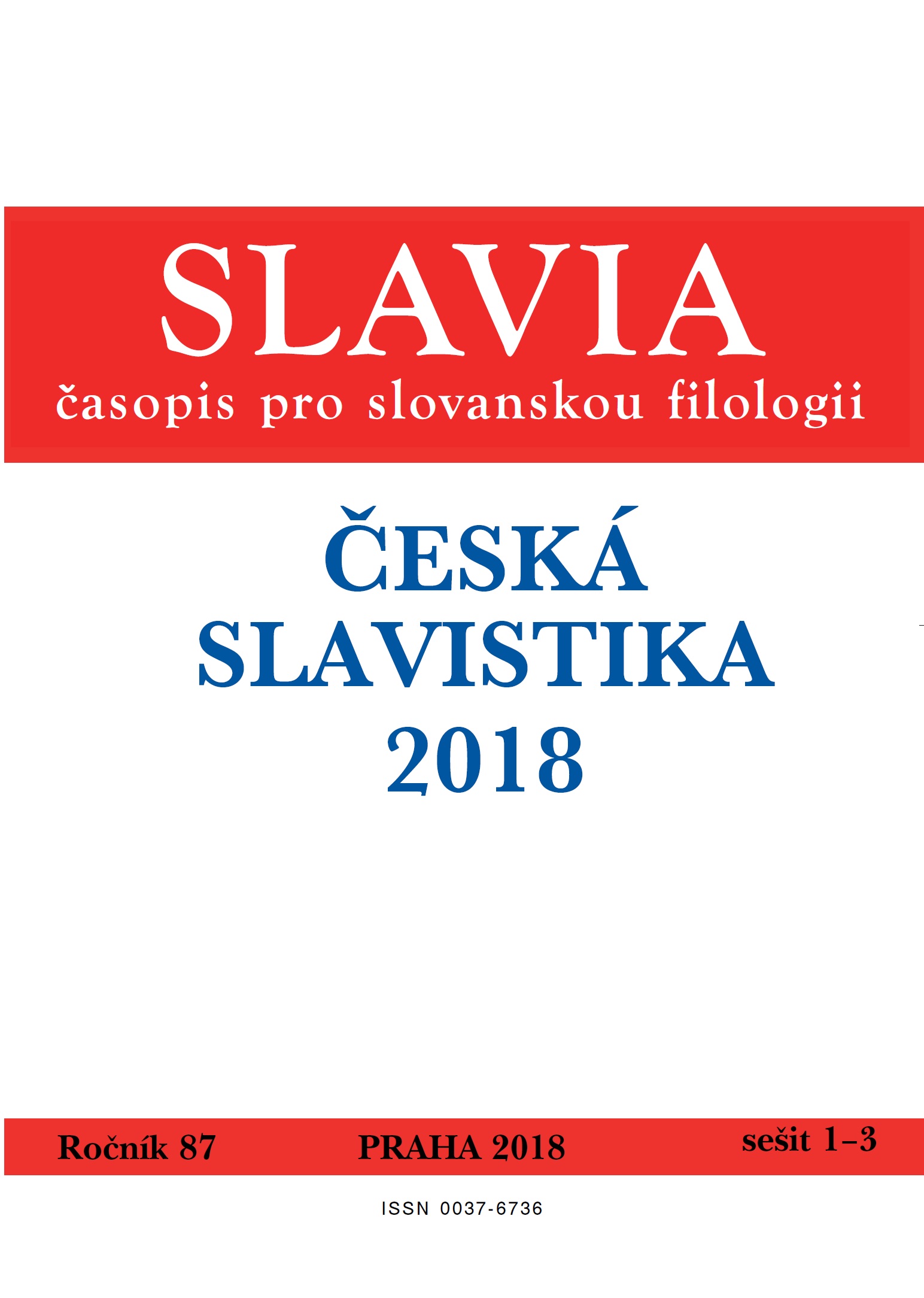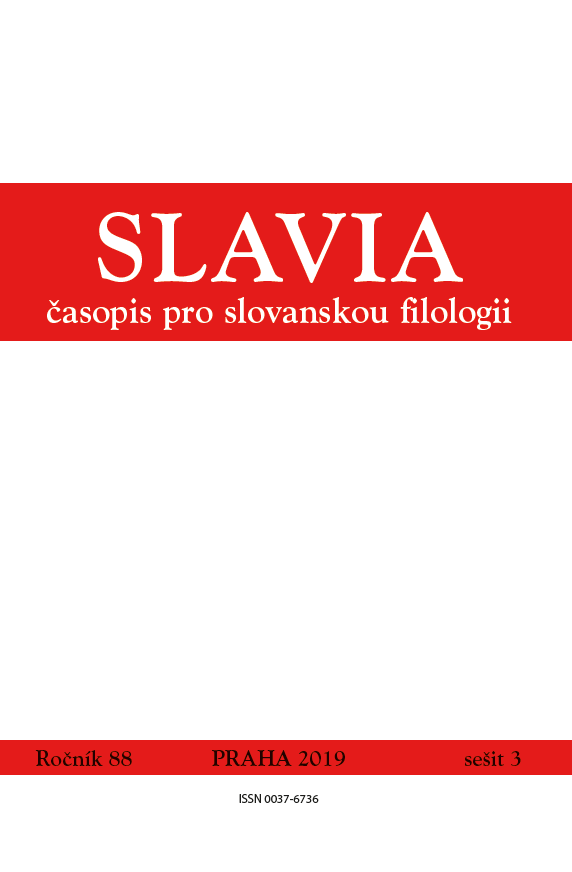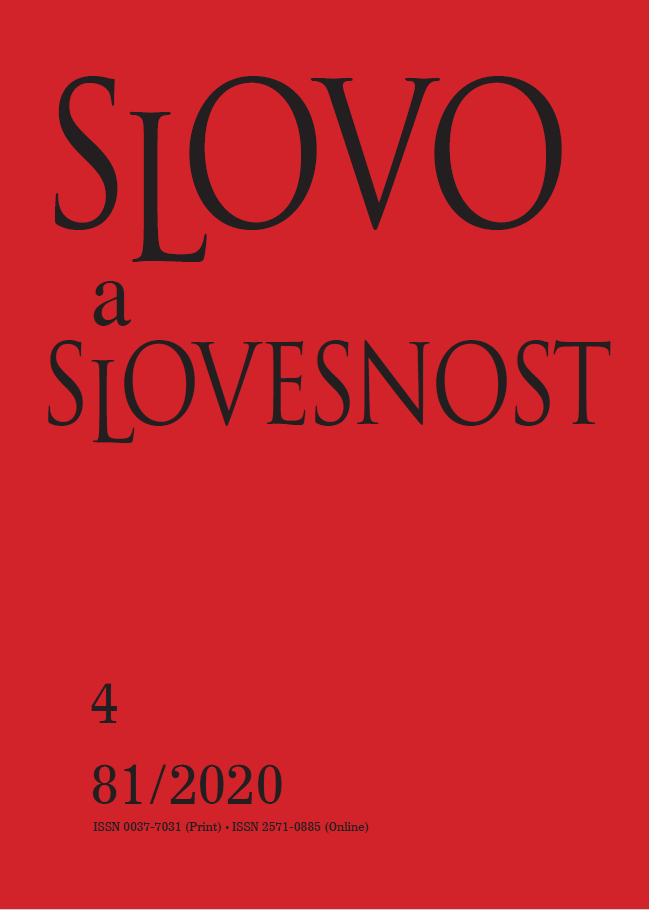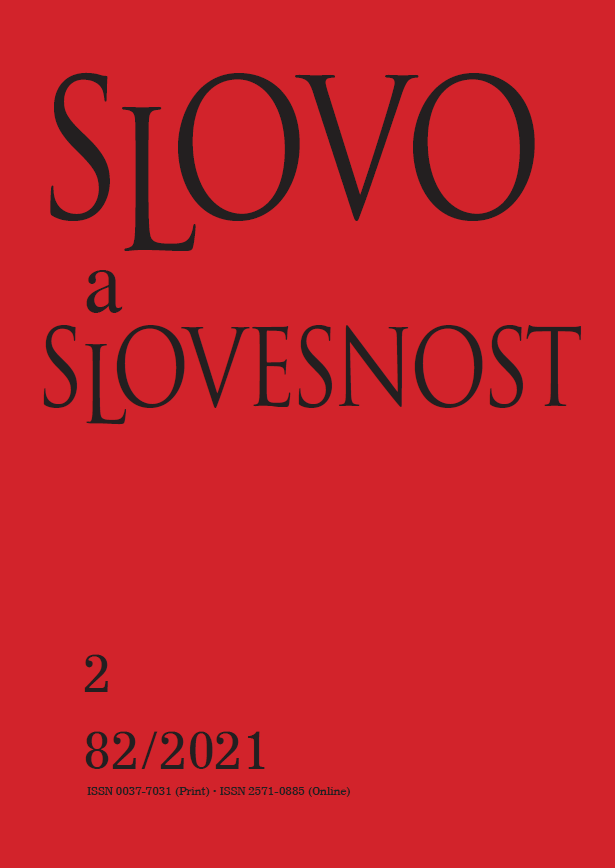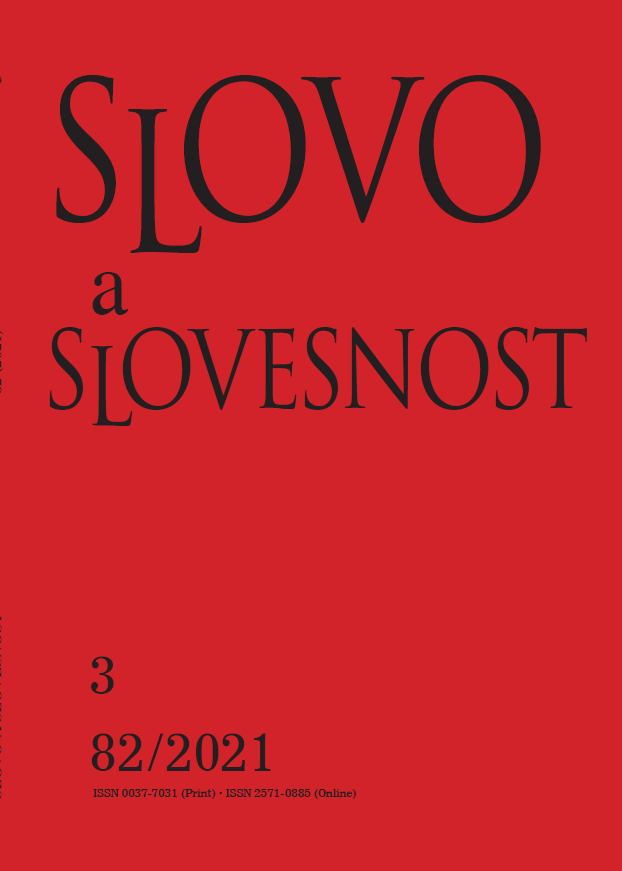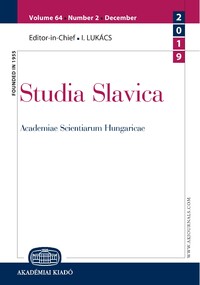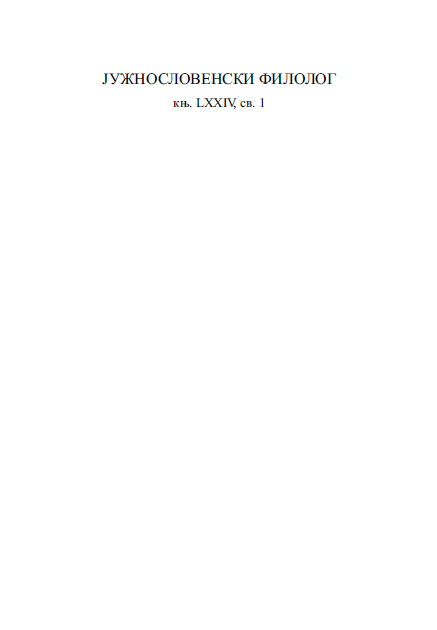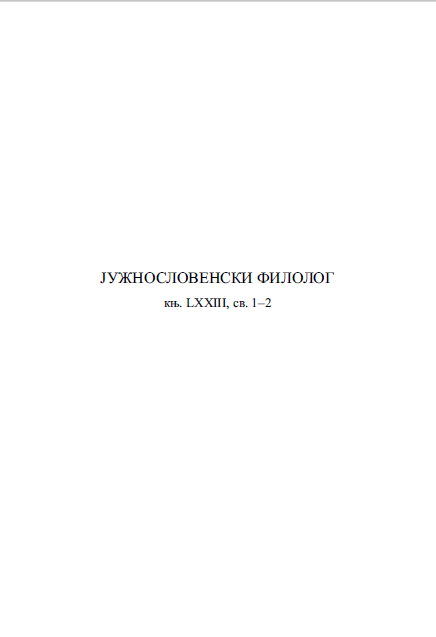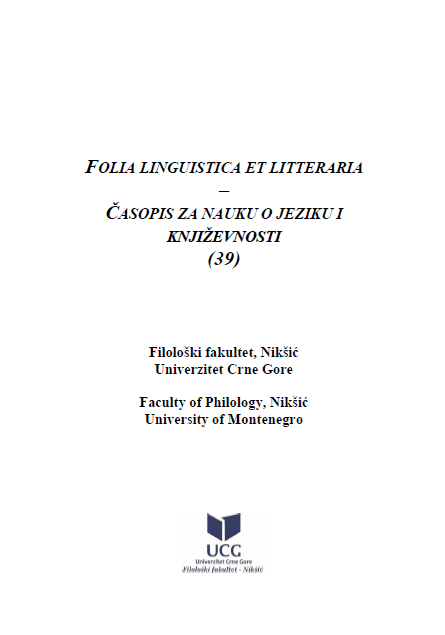Author(s): Péter Pátrovics / Language(s): English
Issue: 1/2020
By common consent, one of the most characteristic categories of the Polish verb is aspect. There can be little doubt that the origin of the aspect category may lie in Proto-Slavic or much further back in the Proto-Indo- European language. It is a moot point whether the aspect was already a strong category in Proto-Slavic. Nonetheless, it is beyond dispute that the consequences of its emergence were far-reaching and took a relatively long time to clarify in the daughter languages. The various categories such as aspect, biaspectuality, and tense providing the main themes of the present paper were closely related and did interact, however, the essential effects of their interaction can only be identified by scrutiny. In Old Church Slavonic, a certain degree of competition between the category of aspect and that of tense can already be observed, and this is also evident in Old Polish, in which tenses like the aorist and the imperfect were slowly falling into disuse. Their occurrence is quite rare even in the earliest Polish written records. In due course, the perfect tense gained ground and the pluperfect became almost completely obsolete. In Modern Polish, the latter only serves to archaize literary texts. In the further stages of development, the aspectual opposition also extended to the future tenses thereby affecting the entire Polish tense system. Also, in the aspect-tense system of the Modern Polish language, the tendency of the category of aspect to prevail over the category of tense together with the gradual decline in the number of biaspectual verbs, still common in the 16th century, seems to be quite clear. Most of the originally biaspectual initial verbs were later perfectivized by means of prefixes. Thus, the simple verbal bases and their perfectivized derivatives could establish an aspectual partnership. In the case of verbs with foreign roots, the prefix z-/ s- played a pivotal role in perfectivation, while other prefixes such as za- and po- had a less important role. The process of perfectivation in Polish was so extensive that only few biaspectual verbs remained free of the opposition of aspect as reminders of the fact that the development of this category is still an ongoing process. This is also shown by the more recent biaspectual verbs with borrowed roots for which it can be anticipated that they will form their perfective counterparts soon. The paper concludes that the amount of verbs with an aspectually uncertain status is likely to be a reliable indicator of the development of the aspect category for the earlier periods in the history of the Polish language. An important role in this may play the diachronic corpus-based investigation, which, though for a long time considered a stepchild of Slavic aspectual research, may still help to clarify a number of issues related to the category of aspect.
More...
